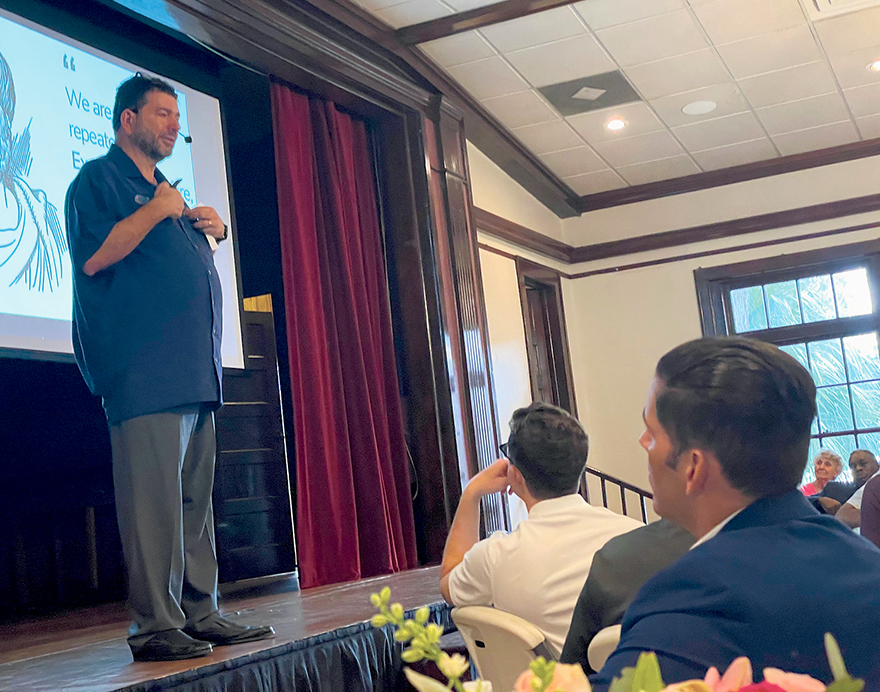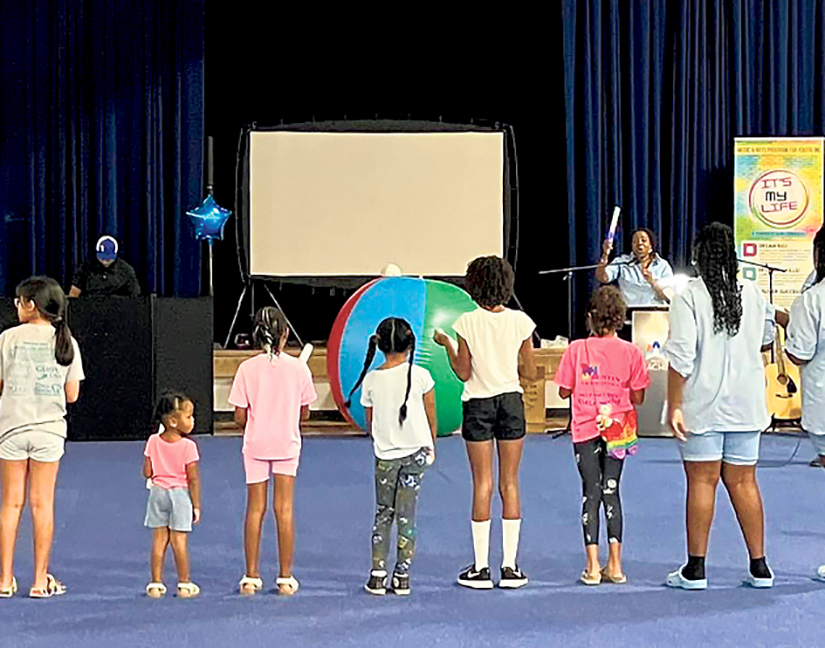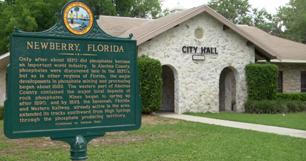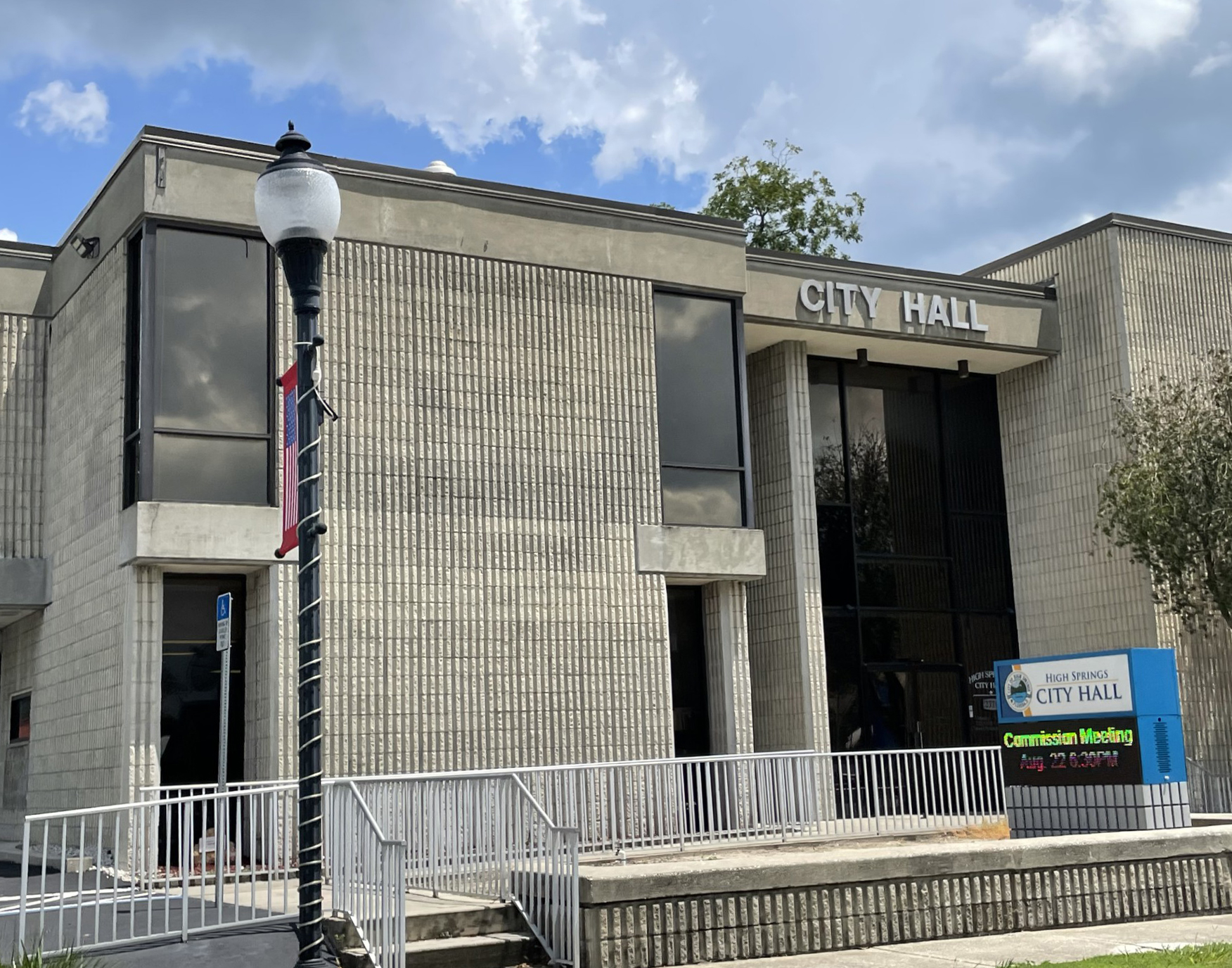HIGH SPRINGS – At their Sept. 12, 2024, meeting, the High Springs City Commission took significant steps for the upcoming fiscal year, approving the first readings of the City budget and property tax millage rate.
The tentative millage rate of 6.7400 is a 5.64 percent higher than the rolled-back rate of 6.3802 but is 3.6 percent lower than last year’s 6.9900 rate.
High Springs Finance Director Diane Wilson noted that while the rate decrease appears beneficial, it still results in higher revenue, making it a tax increase. The City Attorney announced that the final public hearing to consider the budget and millage rate will take place at 6:30 p.m. on Monday, Sept. 23, 2024.
Wilson also discussed the $27.2 million City budget, highlighting upcoming increases for water and solid waste customers, with water bills rising by $3.99 per month and residential solid waste services by $3.
Mayor Katherine Weitz expressed frustration over the doubled costs, recalling earlier promises of price consistency. “And now we are at double,” said Weitz. “I have a hard time explaining that to people when they ask, but I mean this is contractually what we’re obligated to.”
Weitz asked whether the new AMI meters are saving the City money by billing more accurately for water usage. Wilson said it will take a full calendar year to determine that, but the AMI meters should be able to determine leaks in the system more quickly and save resources that way.
City Manager Jeremy Marshall outlined his plan to cut costs in the current year and focus on increasing non-tax revenue sources like user fees in the next. He said he does not want to raise taxes and that extra revenue can come from user fees, leases and other non-tax sources such as renting out the new Douglass Community Center. Marshall said his budget for next year should “help slow the spending, get it under control.”
The motion to approve the property tax millage rate was unanimously approved 4-0 in a roll call vote. The budget was also unanimously approved 4-0 on first reading in a roll call vote. Commissioner Tristan Grunder was absent from the meeting.
In other business, the Commission also approved a five-year lease renewal with High Springs BMX, continuing their $1 per year agreement. The BMX facility, which has been operating for 20 years, has attracted visitors from 38 states and 16 countries. Additionally, the Commission selected Wildan Engineering for code enforcement services and Dukes Legal for special magistrate services, approving both contracts unanimously.
In a special presentation, Tia Paul, executive director of the Education Foundation of Alachua County, highlighted the nonprofit's ongoing efforts to support local education through grants, scholarships, and mentorship programs. Founded in 1986, the Foundation has been a key player in providing financial assistance to both teachers and students.
Paul discussed the teacher grant program, which provides grants ranging from $2,000 to $5,000, partially funded by the state’s “Catalyst for Change” initiative. The Foundation also recognizes excellence in teaching with 39 Teacher of the Year awards.
One of the standout programs is the Foundation’s post-secondary pathways initiative, which awarded $539,000 in scholarships to 117 graduating seniors this past year. These scholarships ranged from $1,000 to $5,000 and are designed to help students with college and career readiness.
Paul also spoke about the Take Stock in Children program, which currently serves 314 students. The program begins in grades 6 through 9, pairing students with mentors who meet with them weekly at school. Students in the program receive college readiness services, and upon high school graduation, are awarded a two-year Florida Prepaid scholarship that covers tuition at a state college.
Paul said that 97 percent of participants graduate high school on time, 80 percent go on to college or Career and Technical Education programs, and 70 percent successfully graduate,” Paul shared. The program is also working to increase its percentage of male participants, currently at 38 percent.
Wrapping up the meeting, during final comments City Manager Marshall suggested canceling the proposed Community Development District (CDD) workshop since the Bridlewood developers have opted out of a CDD-based plan.
Marshall said that the mold remediation at the High Springs fire station will begin in two weeks and Camp Kulaqua may let the firefighters stay there during the remediation process.
The next City Commission meeting is scheduled for Monday, Sept. 23, 2024, at which time the Commission will finalize their millage rate and budget for FY 2024-25.
# # #
Email cwalker@
alachuatoday.com







